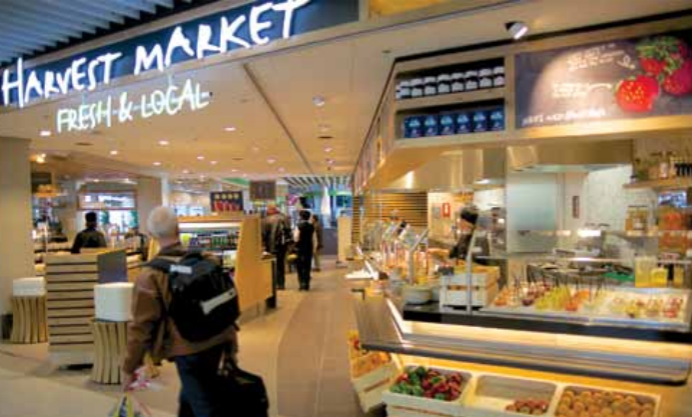Autogrill sourcing local, fresh, authentic produce
As Autogrill — the world’s leading provider of food and beverage services for travellers — says in its mission statement, the consumer is central to its approach. Autogrill has identified different groups of guests and finds the right products for each group.
“The food and beverage market is changing. There are new needs. People handle food and beverages in a different way and as a business owner you have to prepare for the right needs,” said Stefano Teatini of Autogrill EU food and beverage Purchase Managers Restaurant Concepts during his address to the international conference on ‘Tomatoes, trends towards 2020’ held from 13 to15 April 2016 in Antwerp.
For every moment of use, Autogrill has mapped the customer’s needs. The same customer may have different needs depending on the situation. A quick meal at an airport calls for different products from a meal during a leisurely family outing. The process results in linking customer needs to product properties.
Local, fresh and authentic
For instance, a tomato that is local, fresh, authentic and tasteful will appeal to a consumer who is looking for healthy food. Shape and colour are important as well. For the consumer who is into fun and sharing, tomatoes that are crazy and unusual are perfectly suitable, whereas the consumer that values convenience and pragmatism will need a lower price and a round red tomato with a longer shelf life. Finding the right products for the right customer also takes into account how the customer looks at food and beverages, now and in the future. Autogrill has identified a number of trends it will be focusing on for the coming 10 to 15 years.
“One of those trends is linking local to non-local products,” Teatini said.”For instance, you take a simple sandwich and add a Korean or Indian spice to it to create a completely new product.”
New flavours are expected to influence the food and beverage industry. Teatini thinks particularly that North African spices like harissa, sumac or dukka will cross our paths in the coming years.
Preventing food waste, and GMO-free products
Another of the societal developments that Autogrill has picked up on is the customer’s resistance to food being wasted. The fact that 50% of all food is wasted worldwide (source: British Institution of Mechanical Engineers) calls for a response.
“Trash to treasure remains important. A more sustainable use of the available resources is a trend,” Teatini said.
It is one of Autogrill’s priorities to address this issue. It aims for head to tail use of all products and monitors the food waste for every location on a monthly basis, working towards a target waste of maximum 1% of the total volume bought. Although the discussion may have faded away a bit, the consumer remains negative on GMOs (genetically modified organisms). A massive 70% of consumers say they would be more likely to purchase foods or beverages described as GMO-free and 34% would be willing to pay more for GMO-free menu items (source: Technomic Healthy Eating Consumer Trend Report 2014).
“We decided to go GMO-free and communicate about that,” Teatini said. “90% of the consumers think that GMO-free products are better and tastier and that is something we are working with.”
Changing logistics
Evidently, in an organisation as large as Autogrill, procurement is very important. The firm has observed a shift towards an increasing interest in local products. The demand for fresh local products satisfies the consumer but puts a strain on the food supply chain. It challenges a logistics system that is geared towards consolidation, centralisation and a long shelf life.
“We see that change and are in the process of finding solutions for it,” Teatini said.
“How can we modify our logistics for the new local product?” When sourcing local products, it is also important to take aspects like traceability, food safety and animal welfare into account, because apart from being local the customers want the products to be safe as well. And there is another logistics aspect — Autogrill calls it the delivery revolution — that is affecting the food and beverage industry. “Consumers want to get food at the time and in the way they choose, 24/7,” Teatini said.
Already there are several initiatives that facilitate food being delivered at home. For instance, McDonalds have a delivery service or Post Mates US picks up the meal you ordered from a restaurant.



